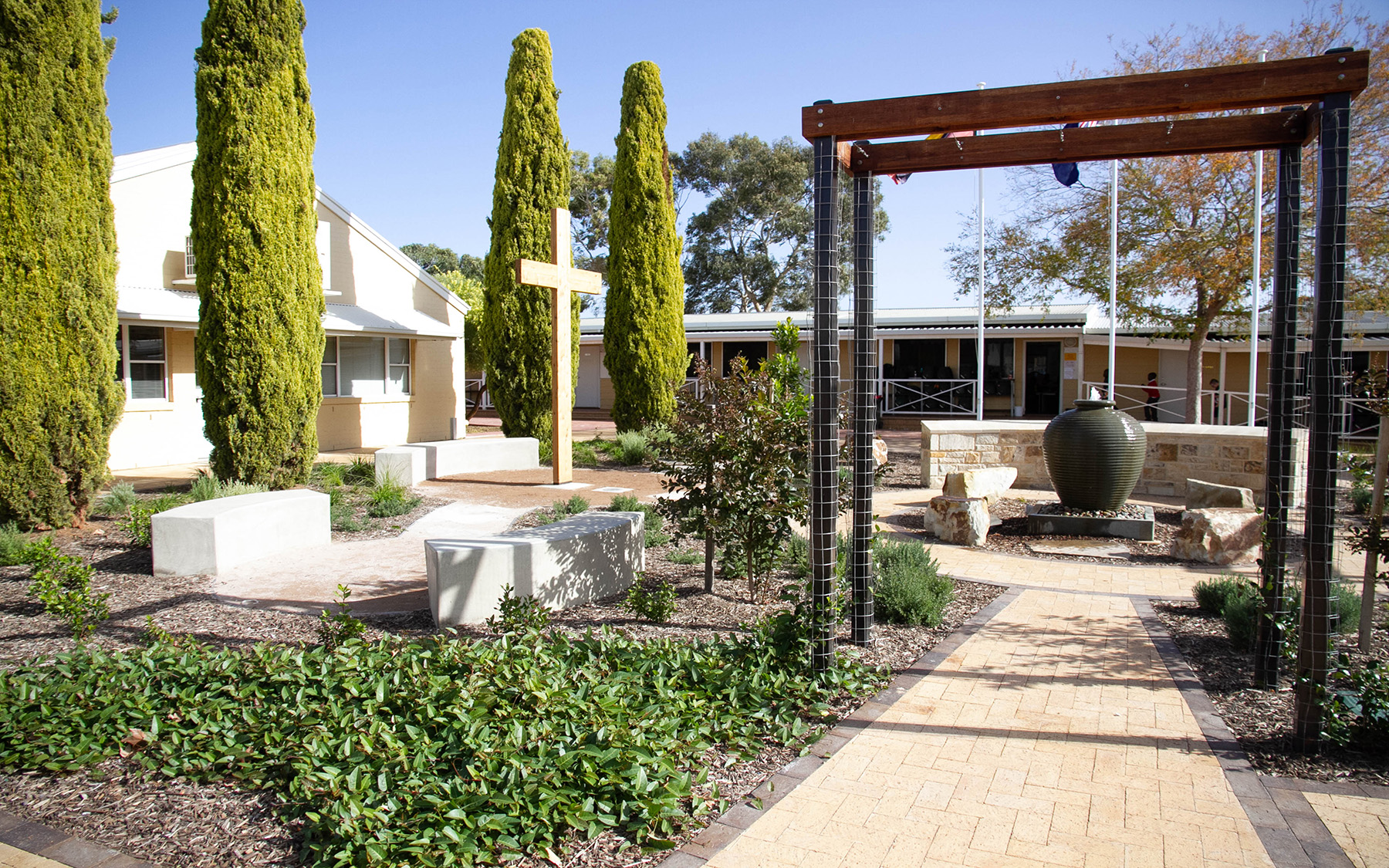Student Wellbeing
We believe supporting the wellbeing of all students within our care is essential to ensuring happy, healthy and engaged individuals.
We value not only fostering academic growth but also the social and emotional wellbeing of all students. Our approach is centred on Positive Education to promote wellbeing as an integral part of the St Columba experience along with our other pastoral care programs.


Positive Education
Positive Education brings together the science of positive psychology with best-practice teaching. Research shows that teaching the following skills can have a powerful and long lasting impact on wellbeing. This strengths-based approach across R-12 focuses on developing:
- Character Strengths: Using the strengths that come most naturally to the individual in managing life;
- Emotional Intelligence: The ability to identify, acknowledge and manage our emotions and relationships with others;
- Gratitude and Mindfulness: The practice of paying attention via self-awareness, prayer and thanksgiving;
- Mental Toughness: The capacity to perform to the best of our ability when dealing with challenges;
- Positive Health: Developing and maintaining sustainable habits for optimal physical health.
These skills aim to foster greater motivation, engagement and persistence leading to improved performance, academic outcomes, relationships and success in life.
Wellbeing Team
The support team for student wellbeing extends beyond teachers and includes Counsellors, a Nurse and Chaplains.
Counsellors
The team of Counsellors are qualified to work individually or in small groups. We encourage students across all year levels to seek help in regards to friendships, relationships, conflict resolution, bullying, problem-solving and mental health.
The Counselling Team provides confidential, professional counselling support to students across all year levels.
Situated at all sites, the Counselling Team recognise that acquiring appropriate help-seeking behaviours is an important and adaptive life-skill for young people. Help-seeking is one of the primary indicators of a student’s strength of character.
The professional and qualified Counselling Team uphold their commitment to student support by maintaining a strong focus on wellbeing and to meaningfully respond to requests for help from the student body.
Senior First Aid / Health Officer
The Senior First Aid / Health Officer has a crucial role in the provision of health and wellbeing services across R-12. The College takes a proactive approach in working with parents and caregivers to support their child with physical and mental health needs.
External Experts
The College engages experts to work with students across the year regarding risk-taking behaviours, sleep deprivation, nutrition, screen time, keeping safe online and responding to bullying.
House System
St Columba College provides students with opportunities to engage with students from a variety of year levels, creating supportive links and developing positive relationships.
Our House system allows students to experience the support and friendship of their peers through engagement in a variety of activities that incorporate students from all year levels. This in turn, creates smaller communities within the larger College community. Upon enrolment, a student becomes a member of one of our eight Houses.
Each house is named after a significant person, from our Anglican and Catholic traditions, who has contributed in a meaningful way to Australian society.
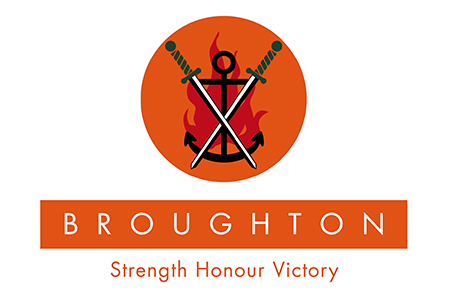

Broughton
Strength Honour Victory
Patron
William Broughton came to New South Wales under the patronage of the Duke of Wellington.
In 1829 he became the Head of the Anglican Church in Australia as Archdeacon. In 1836 he became the first and only Bishop of Australia for the Anglican Church.
Frustrated by the withdrawal of funds for religion and education with the suspension of the Church and Schools Corporation, Broughton advocated ideas for funding largely taken up by the Government in the Church Acts.
William Broughton is noted for his tireless efforts to ensure ongoing state funding for his church schools. He was generally respected as a devoted Churchman, however his conservatism and High Church leanings concerned some.
Symbol
There are three components to the Crest: fire - a heraldic symbol associated with life and steadfastness, the crossed swords - symbolic of peace, honour and victory and finally the anchor - a symbol of stability and strength thus the House motto - Strength, Honour Victory.
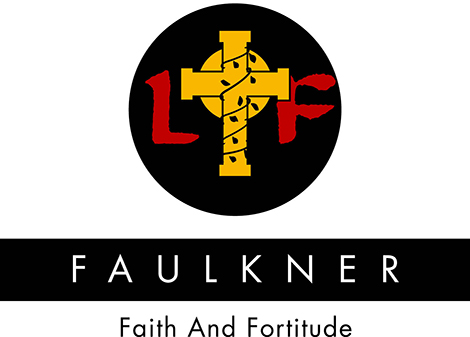

Faulkner
Faith and Fortitude
Patron
Leonard Faulkner (1926 - 2018)
Named after The Most Rev Leonard Faulkner (born 1926); ordained a priest in Adelaide at age 24 and installed as Bishop of Townsville in 1967. Returning to Adelaide in 1983 he was appointed Coadjutor Archbishop of Adelaide and then Archbishop in 1985 until his retirement in 2001. Archbishop Faulkner was co-founder of the concept of, and instrumental in the origins of St Columba College.
Symbol
At the heart of the symbol is a Celtic cross linking with the heritage of St Columba; around the cross is a vine representing growth, with the Celtic lettering L F honouring the College’s co-founder Leonard Faulkner and his Celtic heritage. The motto is - Faith and Fortitude.
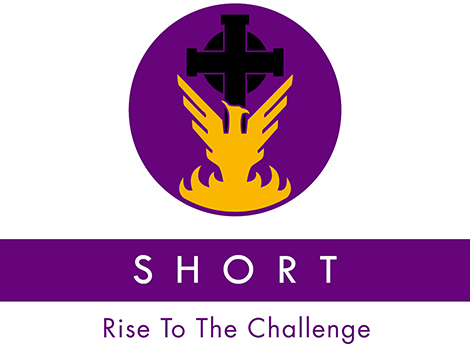

Short
Rise To The Challenge
Patron
Augustus Short (1802 - 1883)
Augustus Short (born 1802); was South Australia’s first Anglican bishop. Born in Devon, he was educated at Westminster School, London, and Christ Church, Oxford University (BA 1824), and then ordained in the Church of England. In 1847 Short was appointed bishop of Adelaide and was consecrated in Westminster Abbey.
Short was an energetic and often innovative leader of South Australia’s Anglican Church. He laid firm institutional foundations. His first tasks were to create a system of diocesan self-government through a representative synod (1855) and to promote financial self-support. He also began the building of St Peter’s Cathedral (1869), recruited clergy, founded St Barnabas’ Theological College (1880), encouraged the creation of educational and charitable institutions that served the whole community, and took a close interest in the Poonindie Aboriginal mission.
Symbol
The symbol has two major elements - the Celtic cross which symbolises the College’s link to Columba and the great Celtic saint with the phoenix beneath it, symbolising new life and growth. It is the phoenix symbol which inspires the house motto of - Rise To The Challenge.


Lashmar
Forever Looking Forward
Patron
Lilla Lashmar (1895 - 1942)
Named after Lilla Lashmar (1895 - 1942); who spent her childhood on Kangaroo Island before moving to Adelaide for work. From 1928 Miss Lashmar worked at various PNG Anglican missions as a teacher caring for up to 400 children. During World War II Lilla Lashmar remained with the mission at Sangara even though other women had been evacuated. During 1942 she and several other missionaries were forced to retreat into the jungle where they were captured by renegade natives and handed over to the Japanese. Days later, on Buna Beach, she and her four fellow missionaries were decapitated by the invading enemy, their bodies were thrown into the sea and never recovered.
Symbol
The hands in the symbol symbolise guiding, nurturing and spreading Christianity and relate to Lilla Lashmar’s missionary work. The dove with an olive branch symbolises peace and harmony and links with the College’s logo. The dove looking forward relates to the motto - Forever Looking Forward.
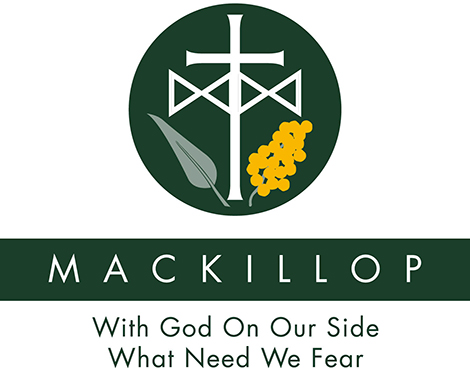

MacKillop
With God On Our Side, What Need We Fear
Patron
Blessed Mary MacKillop (1842 - 1909)
Named after St Mary MacKillop (1842 - 1909); who became Australia’s first saint. Mary MacKillop along with Fr Julian Tenison Woods founded Australia’s first free Catholic school. Pupils were accepted whether their parents could afford to pay or not. Later, the two began the Sisters of St Joseph of the Sacred Heart order of nuns. The order went on to found large numbers of schools providing affordable, Catholic education for all.
Symbol
The white cross in the symbol is the Josephite cross of the Sisters of St Joseph of the Sacred Heart. It is flanked by a eucalypt leaf and wattle sprig representing Mary MacKillop’s work in Australia. The house motto is one of her own sayings - With God On Our Side What Need We Fear.


MacLennan
Believe And Achieve
Patron
Flora Joy MacLennan (1912 - 1992)
Named after Flora Joy MacLennan (1912 - 1992); an Adelaide social worker who first worked at the Lady Gowrie Child Care Centre and Adelaide City Council. In 1945 she established a new branch of the Commonwealth Social Services. In the 1950s she compiled an influential report on aged care and developed a host of Social Welfare networks. She was the founder of the Church of England Social Welfare Bureau which eventually became Anglicare.
Symbol
The tree at the centre is a cedar - a symbol of strong faith. The rainbow in the background represents hope and in Joy MacLennan’s case the hope to achieve. Each links with her commitment to social work, providing better outcomes for others. This is also reflected in the motto - Believe And Achieve.
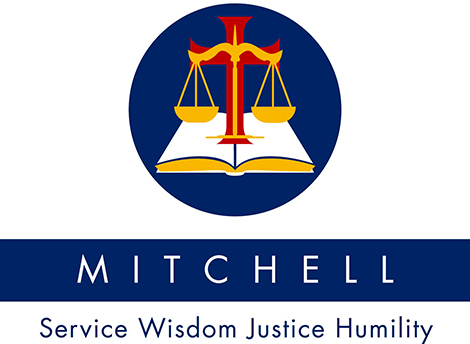

Mitchell
Service Wisdom Justice Humility
Patron
The Hon Dame Roma Flinders Mitchell (1913 - 2000)
Named after The Hon Dame Roma Flinders Mitchell (1913 - 2000); a South Australian barrister and solicitor who in 1962 became Australia’s first female QC. In 1965 she was appointed a judge of the Supreme Court of South Australia. From 1981 to 1986 Dame Roma was the first Chair of the Australian Human Rights Commission. She was the first woman to hold a vice-regal position in Australia as Governor of South Australia.
Symbol
The scales of justice represent Roma Mitchell’s involvement in the legal profession. The open book represents learning with the red cross signifying her service, humility and religious life. These references also give rise to the house motto - Service Wisdom Justice Humility.
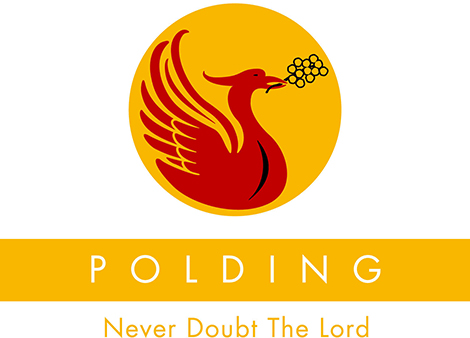

Polding
Never Doubt The Lord
Patron
John Bede Polding (1794 - 1877)
Named after John Bede Polding (1794 - 1877); a native of Liverpool, England he was ordained in 1819. Fr. Polding was appointed the first Catholic Bishop to the new colonies of New South Wales, New Holland and Van Dieman’s Land in 1834. He worked in the convict prisons, teaching the Catechsim and attending to the sick and dying. Bishop Polding also founded St John’s College in the University of Sydney in 1858.
Symbol
The main feature of the symbol is the mythical Liver Bird, the emblem of the City of Liverpool. This creature is said to have evolved from the eagle, the symbol of the evangelist John from whose writing Bishop Polding drew heavily. It holds in its beak a sprig of wattle symbolising Australia. The house shares its motto with that of St John’s College in Sydney - Never Doubt The Lord.


